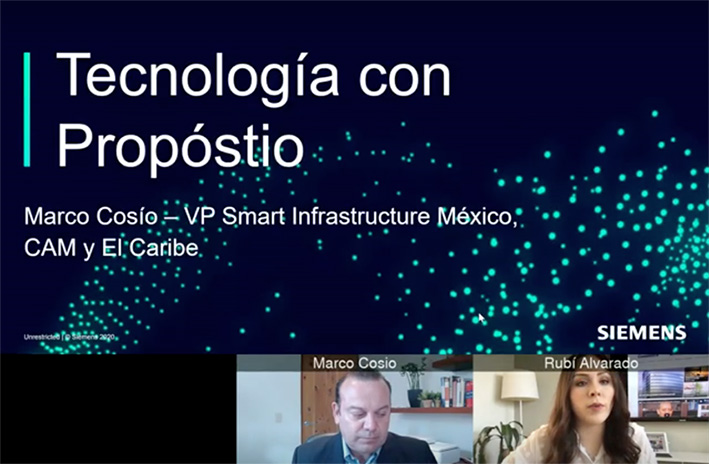Smart Energy is becoming an achievable and predictable trend for the future. Is it a yes or a no? Marco Cosío from Siemens talks about it.
At the Energy Oil & Gas Summit event, Marco Cosío, Executive Vice President of Smart Infrastructures for Siemens Central America and the Caribbean, shared his thoughts on the many benefits and ways to achieve smart solutions for energy.
Getting familiar
Smart energy can be defined as the combination of energy efficiency, clean energy, and significant interaction with the grid. For example, solutions must use power efficiently, flexibly, low emissions, and sustainably.
Cosío said that to achieve those solutions, investors must consider costs, regulations, and, last but not least, the environment.
Yes or no?
Regarding a yes or no to smart alternatives, the vice president stressed that suitable technologies already exist. Furthermore, the recognition of the environmental impact of energy is becoming more and more common. So what should we do to improve smart solutions?
According to the expert, the question is more about how to achieve sustainability. For him, it is a yes to smart energy given the relevance of low voltages for current and future generations in terms of consumption, familiarity, and transformation impact.
In that sense, Cosío said that some companies already recognize the relevance of infrastructure and reliability beyond costs due to international consumption patterns.
Smart energy solutions
Some of the solutions undertaken by these companies include energy auditing activities, efficient use of electricity in commercial buildings, and digitalization strategies.
The vice president said auditing activities are crucial for businesses and consumers to measure how and where energy is being used better or worse. On buildings, they are essential since their level of electricity consumption is relatively high.
Regarding digitalization, Cosío said that solutions such as sensors, controllers, management modules, and digital applications could translate into energy victories.
Finally, on the possibility of adopting smart energy massively in Mexico, the vice president expressed that it would require money and, more critical, intention. The actors that can already work with these energies and acquire sustainability are various companies and commercial buildings.


